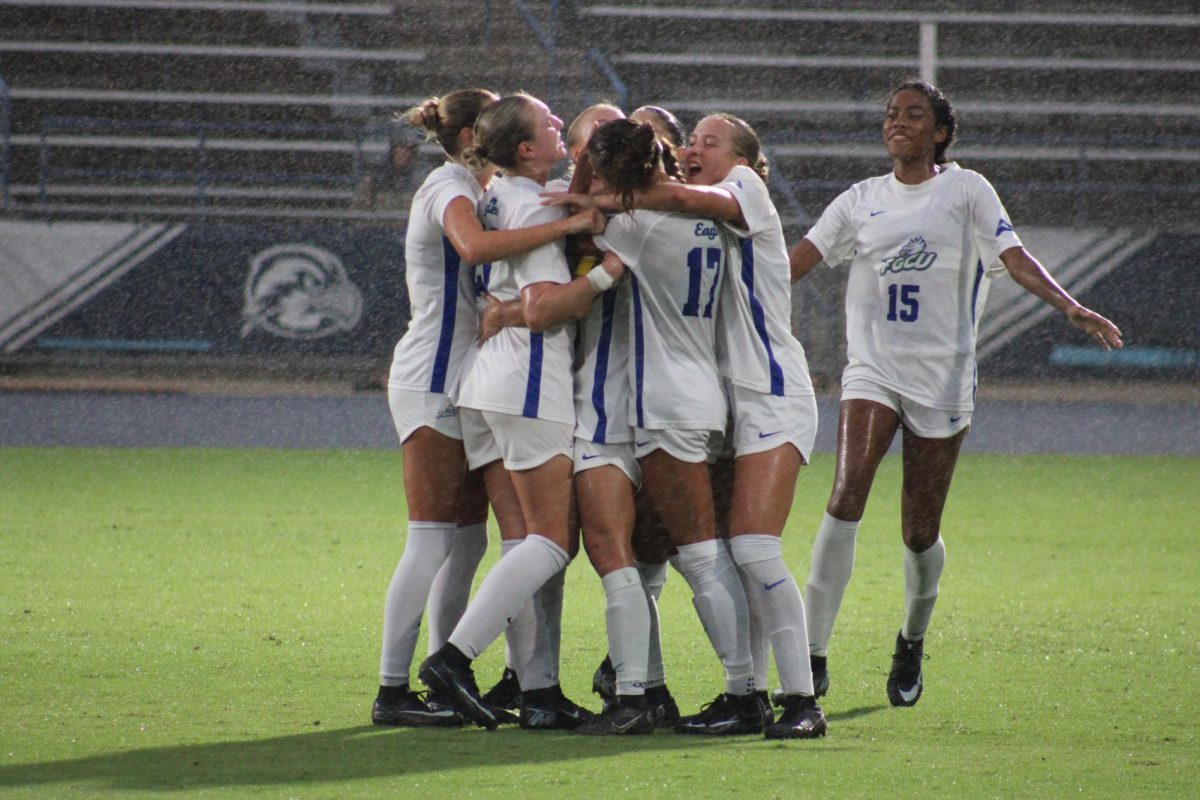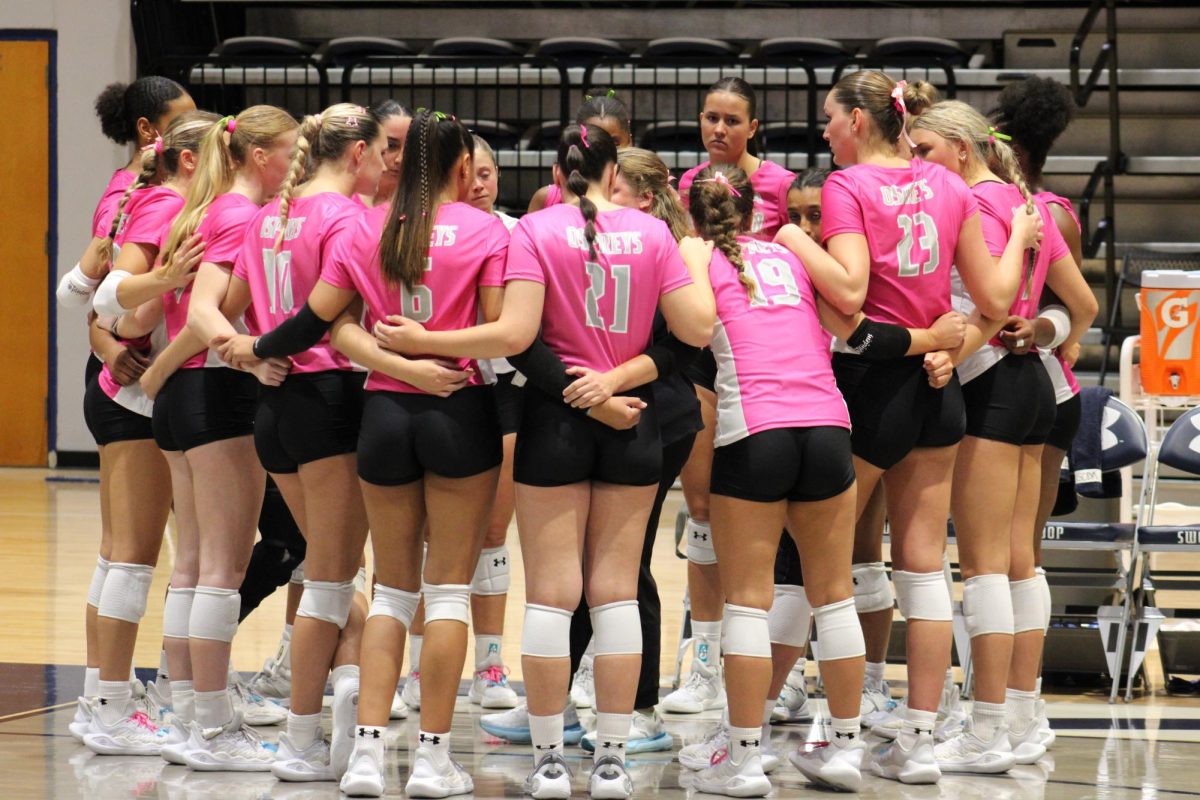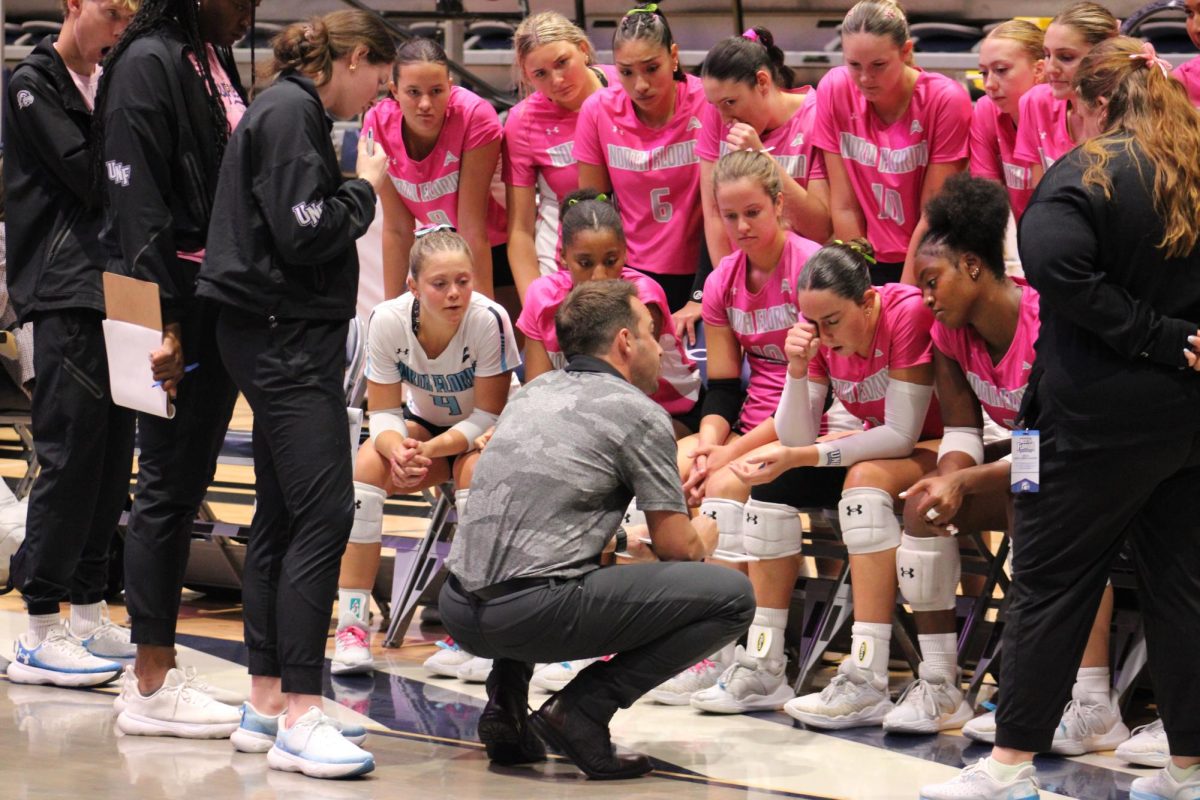By: Maggie Seppi, Assistant News Editor
As reported in the Spinnaker last week, a 15% tuition increase proposal approved by the UNF Board of Trustees March 20 entails a tuition differential increase from $21.42 to $40.13, bringing the total per credit hour charge to $143.45.
The increase is the result of $300 million in cuts for Florida universities, which impacted each of them differently. UNF was cut the least, with a $5 million reduction.
On the upper end of the spectrum, Florida State University endured a $66 million cut, and the University of Central Florida lost $53 million. The University of Florida and the University of South Florida came in about equal, both with around $37 million in losses.
A change in the tuition differential, in this case an increase of 15 percent, affects the overall price of tuition but refers to a different aspect of it.
The two, tuition and tuition differential, were disputed several years ago when it was decided the legislature, not the Florida Board of Governors, would be responsible for setting the tuition rate for all state universities. The two compromised when the legislature proposed the BOG could, in turn, set a tuition differential increase of up to 15 percent each year. The differential reflected the money required by the university to operate for the upcoming school year.
The increase will allow UNF to maintain its layoff-free reputation, which is the way UNF President John Delaney said he plans to keep it.
“We’re doing the best we can to manage the money and the resources we have here, and that’s why we’ve been able to handle the five years of cuts without really laying people off,” he said.
There are several reasons UNF endured relatively minor cuts.
Firstly, state Senator John Thrasher’s attempts to protect UNF from extensive budget cuts had an effect on the outcome, Delaney said.
Also, other state universities, such as FSU and UF, had considerable reserve funds, around $200 to $250 million apiece, that hadn’t been used.
“So, they went after a little more aggressively those universities that had these huge bank accounts sitting there that they’d collected from students and hadn’t spent,” he said.
The U.S. tuition average came in at $8,244 for 2011-2012, with Florida universities’ average tuition coming in far below, at $5,626. Thus, as detrimental as this increase appears to students, Florida is the seventh cheapest state to attain higher education, according the BOG’s website.
“There’s 44 states that charge more tuition than we pay in Florida, so it looks to me like tuition is really a pretty good deal,” Delaney said. “I don’t like the price of a car, but the market is the market, in this case, and if you’ve got about the lowest tuition in the country, you have room to move it up to keep your budget going.”
However, accompanying relatively low tuition rates is a low amount of state funding.
Florida is the third highest in decline in state support for higher education since 2006, according to a State Higher Education Executive Officers report.
Low tuition rates and minimal state funding is translating into a burden students are being forced to carry – paying more to attend a Florida university.
Despite the need to accommodate for diminishing state funding, UNF Student Body President Matt Brockelman said there are other options that don’t include students paying more.
“To me, it looks like we are struggling, the budget cuts are hurting us, but at the same time, I think there’s this myth that there’s this huge shortage of money, and if we don’t get a tuition increase, the university is just going to stop operating,” Brockelman said.
At the March 20 BOT meeting, Brockelman made an example of the art department, which was in need of equipment replacement and said it could not afford to replace it without the addition of a new fee. It was later discovered the money, which would have gone to toward the equipment replacement, was actually diverted downtown to the Museum of Contemporary Art Jacksonville to renovate rooms into classrooms.
“The art department example shows perfectly, I think, that money is still there in one way or another,” Brockelman said. “That instead of scaling things back and maybe controlling the growth a little more, the university just wants to keep expanding. So, instead of cutting money, it diverts it elsewhere then comes to us to fill the hole it left.”
On the contrary, Delaney said cuts of this sort have already been made, and the money within the art department is allocated specifically to it and cannot be used in other areas of the university.
“You see a building going up, and you go: ‘Why are we building that building when we should be able to hire more people or give raises to people?’” Delaney said. “But it’s just a completely separate budget that you are not allowed to intermingle.”
Despite his understanding of the need to increase costs, Delaney hopes for a future devoid of cuts. But, he said, that will be largely dependent on whether the legislature will put more money into the higher education system, as opposed to taking from it, which will depend on the economy as a whole.
“It looks, to me, like the economy is improving, so I’m hoping we will start to get a lift next year that would reduce the need to go up on tuition,” Delaney said.
UNF Vice President of Governmental Affairs Janet Owen also looked to a questionable economic forecast for an idea of the ensuing years.
Even if it is determined revenue exists next year, there is no requirement it be spent on higher education. Whether higher education becomes a priority will rely on the state choosing it over other services, such as health services including Medicare and Medicaid.
“So, it’s sort of a year to year thing that we sort out,” Owen said. “Obviously the plan would be to increase state funding and be able to keep tuition increases a little more intact.”
With the 2012-2013 school year marking the fifth year of tuition increases, Brockelman isn’t the only student speaking out against another increase.
UNF political science freshman and SG Senator Jason Fountain, who spoke at the BOT meeting, said he now lives in a home with an income that doesn’t allow for much need-based funding. With the tuition increase, he said it is possible he will no longer be able to accommodate for the loss of funding.
Fountain is maintaining his Bright Futures scholarship, but with a slipping GPA, he’s considered what will happen if he were to lose it.
“If I lose my scholarship, all I’ll be left with are Stafford loans,” Fountain said. “And I had a dream, a silly dream apparently, back in high school, that I wanted to graduate undergrad with under $10,000 in debt, but no, that’s not going to happen whatsoever.”
Fountain said he may only be able to take a couple classes in the upcoming semesters, if any.
Students who were not present at the meeting said the increase won’t affect their ability to remain at UNF next year, but past that, they are unsure. Those with scholarships, however, don’t worry much about the consequences.
“The increases aren’t currently affecting my staying at UNF, but if they continue, future ones could,” said Marcus Rich, a UNF mechanical engineering sophmore.
However, Brittanie Burkert, a UNF nursing freshman, said she doesn’t pay much attention to the changes in tuition because her scholarships are paying most of her way through college.
“I have two types of scholarships, so more increases could affect future generations of my family, yes, but as of now, it’s not affecting me,” she said.
Students’ personal worries about their academic futures parallel those of Brockelman’s for current and future students across the state.
“I think we’re going to continue to see our universities relying more on the students and less on the state,” Brockelman said. “At the end of the day that means that over the next few years, in the foreseeable future, students are going to keep paying more and more and more as we go along.”
The 15 percent tuition differential increase, as well as an 8 percent increase to the undergraduate out-of-state fee are pending approval from the BOG, which will vote on the issue in June.
Email Maggie seppi at asst.news@unfspinnaker.com.















